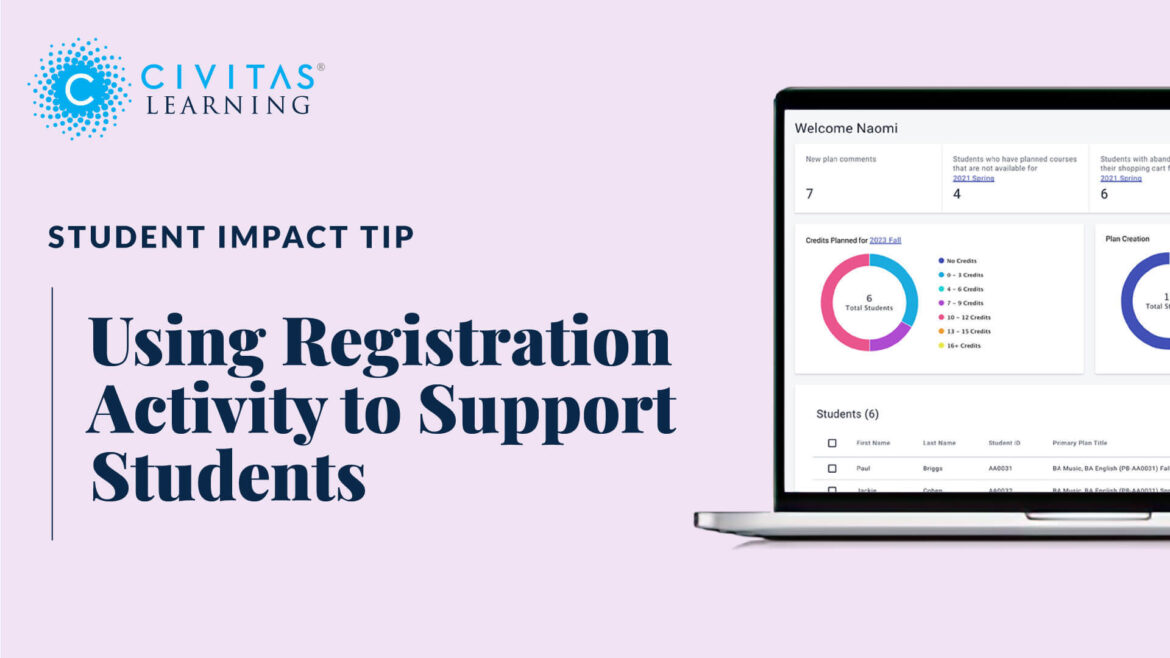
Using Registration Activity to Proactively Support Students
Share this Post
Students’ academic planning and scheduling behaviors can significantly impact their likelihood of persisting and graduating. Failing to register for classes, building incomplete schedules, or other roadblocks to successful planning and scheduling can derail students’ ability to persist to the next term and complete their degrees on time. When students encounter these types of roadblocks, it’s vital that advisors step in to provide guidance before it’s too late.
Advisors should take a proactive approach to keeping students’ academic planning and scheduling on track. By monitoring students’ planning and scheduling behaviors, advisors can help students navigate unexpected changes, confusion, and nuances that affect successful planning. Abandoning classes in the shopping cart, withdrawing from courses, choosing courses that are unavailable, or failing to create an academic plan are all warning signs that students may be experiencing barriers to enrollment and could benefit from proactive outreach.
While simple in theory, advisors know that disparate student data makes it challenging to see a holistic picture of students’ academic planning and scheduling. Without comprehensive, real-time insights, it’s difficult to provide proactive guidance when students need it most.
To ensure students receive the support they need in a timely manner, advisors can monitor students’ scheduling progress. Actionable insights empower advisors to stay informed on potential barriers to scheduling and planning as they arise, so that advisors can reach out and get ahead of any further issues.
Using the Civitas Learning platform’s Academic Planning and Student Scheduling solution, advisors can keep up with changes in their students’ academic and scheduling behaviors. When paired with advising analytics and workflow, student scheduling software provides persistence predictions in consolidated student profiles to pinpoint which specific students need more support.
Advisors can see which students have withdrawn from courses, have holds on their accounts, have abandoned classes in their shopping carts, and other details that prompt them to reach out with proactive guidance. Having that kind of visibility increases the likelihood that students will receive the support they need before enrollment reports are pulled at the end of the semester. Whether it’s downloading lists of students to email or leaving comments on student profiles for immediate collaboration, student scheduling software empowers advisors to take action to keep students on track.
To empower your advisors to provide personalized support at scale, catch a glimpse of Civitas Learning’s Academic Planning and Scheduling software to see how real-time insights can improve student outcomes.


